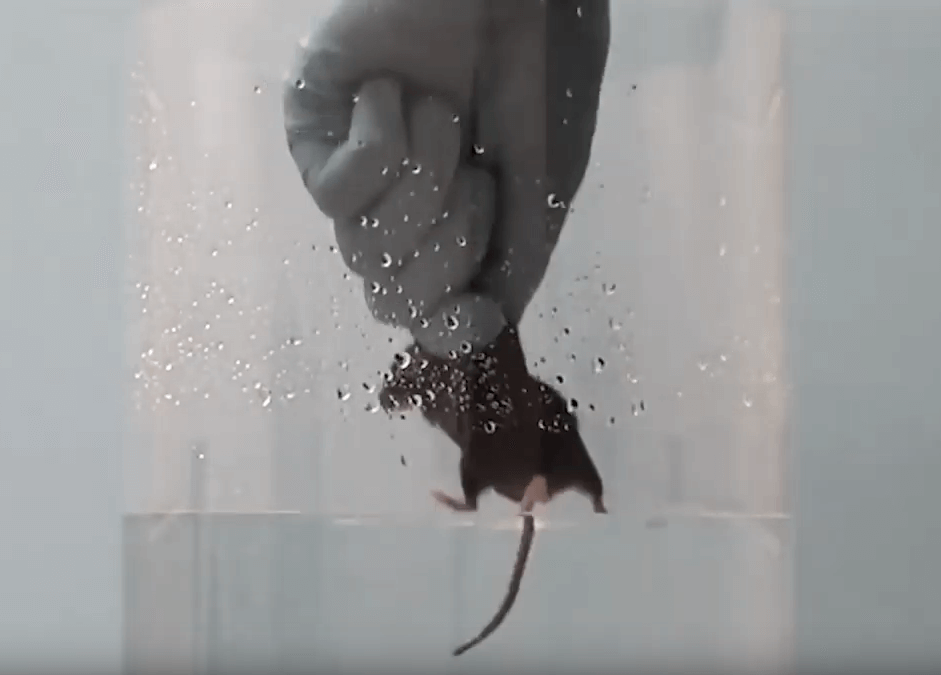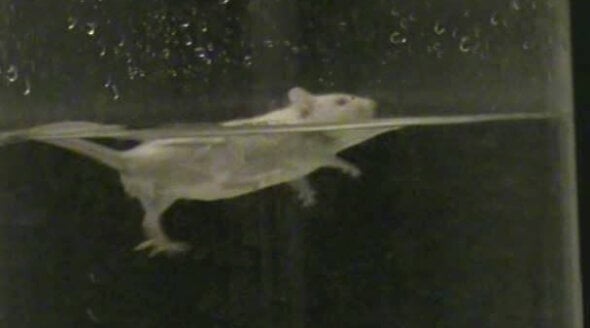Progress! Australia Is One Step Closer to Banning the Forced Swim Test – What About the UK?
Australia is now one step closer to banning the cruel forced swim test, in which small animals are forced into beakers of water and made to swim for their lives. Following requests by PETA Australia and Animal-Free Science Advocacy (formerly Humane Research Australia), the National Health and Medical Research Council (NHMRC) – the main statutory authority of the Australian government responsible for medical research – issued its new position on the forced swim test. In its updated policy, NHMRC recognises that the test significantly impacts animal welfare. The new policy prohibits the council from funding any new experiments that use the test to model human depression or anxiety and its treatment.

The policy also states that experimenters funded by NHMRC who are currently using the test must re-evaluate their project within three months and that animal ethics committees must include compelling justifications for using the forced swim test in their annual reports.
What Does It Mean for Animals?
While NHMRC stopped short of implementing a full ban, these new requirements will significantly reduce, if not eliminate, the use of the forced swim test in Australia. This new policy represents more fallen dominos for experimenters’ flimsy rationalisations for using animals to study human mental health.
PETA entities around the world have been pressing for an end to the use of the test globally, and NHMRC’s report cites their work on this issue. PETA entities will continue to monitor any further use of the forced swim test in Australian laboratories.
What About the UK?
In the UK, the Home Office is currently reviewing its policy on the forced swim test. Advice made public earlier this year from the Animals in Science Committee – an independent advisory body to the Home Office on issues relating to the Animals (Scientific Procedures) Act 1986 – suggested that many licences to conduct the test had been granted without proper scrutiny and concluded that the test has significant limitations. PETA is calling for all licences to be revoked and for the test to be ended in the UK.
What Is the Forced Swim Test?
Also known as the “despair test”, the forced swim test was intended to provide insights into human depression, but in recent years, its validity has been widely criticised. At first, animals used in this test panic and try to escape by attempting to climb the sides of the beakers or even diving underwater in search of an exit. They paddle furiously, desperately trying to keep their heads above water until they eventually start to float.
Some experimenters claim that animals who spend more time floating are depressed, but other experts reason that animals are more likely learning, conserving energy, and adapting to a new environment.
Forcing frantic animals to swim for fear of drowning is both physically and psychologically abusive – not to mention irrelevant to depression or other mental health conditions in humans. An analysis of data from 15 major pharmaceutical companies shows that the forced swim test doesn’t accurately predict whether a compound will have antidepressant efficacy in humans.
How to Help Mice
Scientists all over the world – including at top pharmaceutical companies such as Bristol Myers Squibb, Pfizer, AstraZeneca, AbbVie, and Roche – are no longer wasting time and money on this test.
Please join PETA in urging UK universities and companies to ban this cruel and pointless experiment:





